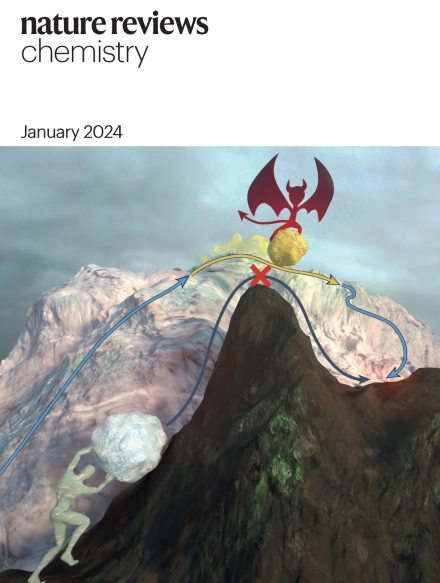3D电池开发的性能指标和机理考虑
IF 51.7
1区 化学
Q1 CHEMISTRY, MULTIDISCIPLINARY
引用次数: 0
摘要
迫切需要改进储能设备,以促进从小型应用(如便携式电子设备)到运输和电网能源的大规模储能市场的发展。下一代电池必须具有高能量密度、高功率密度、快速充电能力、宽温度范围和安全性等特点。为了实现如此雄心勃勃的性能指标,必须开发创造性的解决方案,将最先进的材料系统与先进的架构协同结合起来。3D电池的发展是实现这些目标的一个有希望的解决方案。然而,将电池的各种组件集成到真正的3D架构中仍然存在相当大的挑战。在这篇综述中,我们描述了3D电池的现状,强调了机械见解和相关性能描述符方面的关键进展,并提出了将当前概念转化为商业相关解决方案的未来步骤。本文章由计算机程序翻译,如有差异,请以英文原文为准。


Performance metrics and mechanistic considerations for the development of 3D batteries
There is an urgent need for improved energy storage devices to enable advances in markets ranging from small-scale applications (such as portable electronic devices) to large-scale energy storage for transportation and electric-grid energy. Next-generation batteries must be characterized by high energy density, high power density, fast charging capabilities, operation over a wide temperature range and safety. To achieve such ambitious performance metrics, creative solutions that synergistically combine state-of-the-art material systems with advanced architectures must be developed. The development of 3D batteries is a promising solution for achieving these targets. However, considerable challenges remain related to integrating the various components of a battery into an architecture that is truly 3D. In this Review, we describe the status of 3D batteries, highlight key advances in terms of mechanistic insights and relevant performance descriptors, and suggest future steps for translating current concepts into commercially relevant solutions. In this Review, we provide an overview of the current state of the field of 3D batteries. We discuss critical performance metrics, the potential for scalability and commercialization, and suggest focused areas for future development.
求助全文
通过发布文献求助,成功后即可免费获取论文全文。
去求助
来源期刊

Nature reviews. Chemistry
Chemical Engineering-General Chemical Engineering
CiteScore
52.80
自引率
0.80%
发文量
88
期刊介绍:
Nature Reviews Chemistry is an online-only journal that publishes Reviews, Perspectives, and Comments on various disciplines within chemistry. The Reviews aim to offer balanced and objective analyses of selected topics, providing clear descriptions of relevant scientific literature. The content is designed to be accessible to recent graduates in any chemistry-related discipline while also offering insights for principal investigators and industry-based research scientists. Additionally, Reviews should provide the authors' perspectives on future directions and opinions regarding the major challenges faced by researchers in the field.
 求助内容:
求助内容: 应助结果提醒方式:
应助结果提醒方式:


